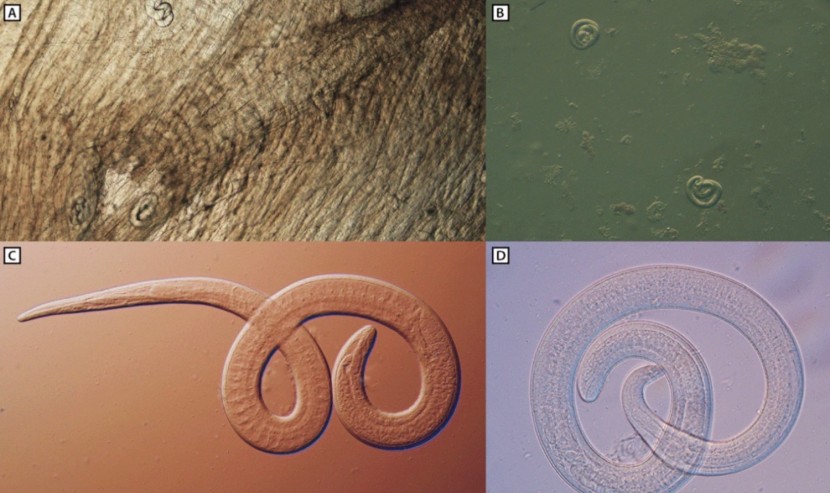
Health officials say six members of a family were infected with brain worms after eating black bear meat.
Eight people shared a meal that included the meat of a bear hunted in Canada and frozen for 45 days, the Centers for Disease Control and Prevention reported. Six of them came down with trichinellosis.
They shared a meal that included kabobs made from the meat of a black bear served rare with vegetables.
Two of the trichinellosis cases occurred in people who only ate the vegetables, but they had been grilled with the meat.
Health investigator found freeze-resistant trichinella larvae in remaining meat frozen for more than 15 weeks.
The cases date back to 2022, but the results of the investigation were just released this week.
In July 2022, the Minnesota Department of Health was notified of a 29-year-old man who was hospitalized with a suspected case of trichinellosis. He had been hospitalized twice over a 17-day period before the trichinellosis was confirmed.
Investigators eventually tracked down the source of the trichinellosis.
What is trichinellosis?
Trichinellosis is a parasitic infection caused by roundworms. The larvae invade the small intestine. After they become adults they enter the blood, reaching skeletal muscles and brain which are high in oxygen content, the National Institutes of Health reports.
How to avoid trichinellosis
Cooking meat to safe internal temperatures is the best way to avoid many foodborne diseases, including trichinellosis.
The CDC says some common ways of handling meat may or may not kill trichinella worms and help stop the spread of trichinellosis:
- Curing (salting), drying, smoking, or microwaving meat alone does not consistently kill the worms.
- Freezing pork less than 6 inches thick for 20 days at 5°F (-15°C) will kill any worms.
- Freezing wild game meats may not effectively kill all worms because some worms that infect wild game are freeze-resistant.
- Cleaning meat grinders thoroughly after each use helps prevent the spread of trichinellosis and other foodborne diseases.
How rare is trichinellosis?
Trichinellosis is rarely reported in the United States. Changes have been made in pork production practices from historical norms that fostered transmission. Most cases reported in recent years are attributed to the consumption of meat from wild game.
Is it legal to eat bear meat in the U.S.?
Bear meat is legal to have and eat in the U.S., according to Outdoor Life. But it is illegal to sell bear meat, which means most of it is consumed by hunters who harvest bears.
Why do bears get worms?
It is not unusual for bears to get parasites like roundworms. The roundworm parasites (trichinella) use a host to live and reproduce. These parasites infect animals such as bears, cougars, walruses, foxes, wild boars and domestic pigs, according to the Mayo Clinic.
© 2025 HNGN, All rights reserved. Do not reproduce without permission.









